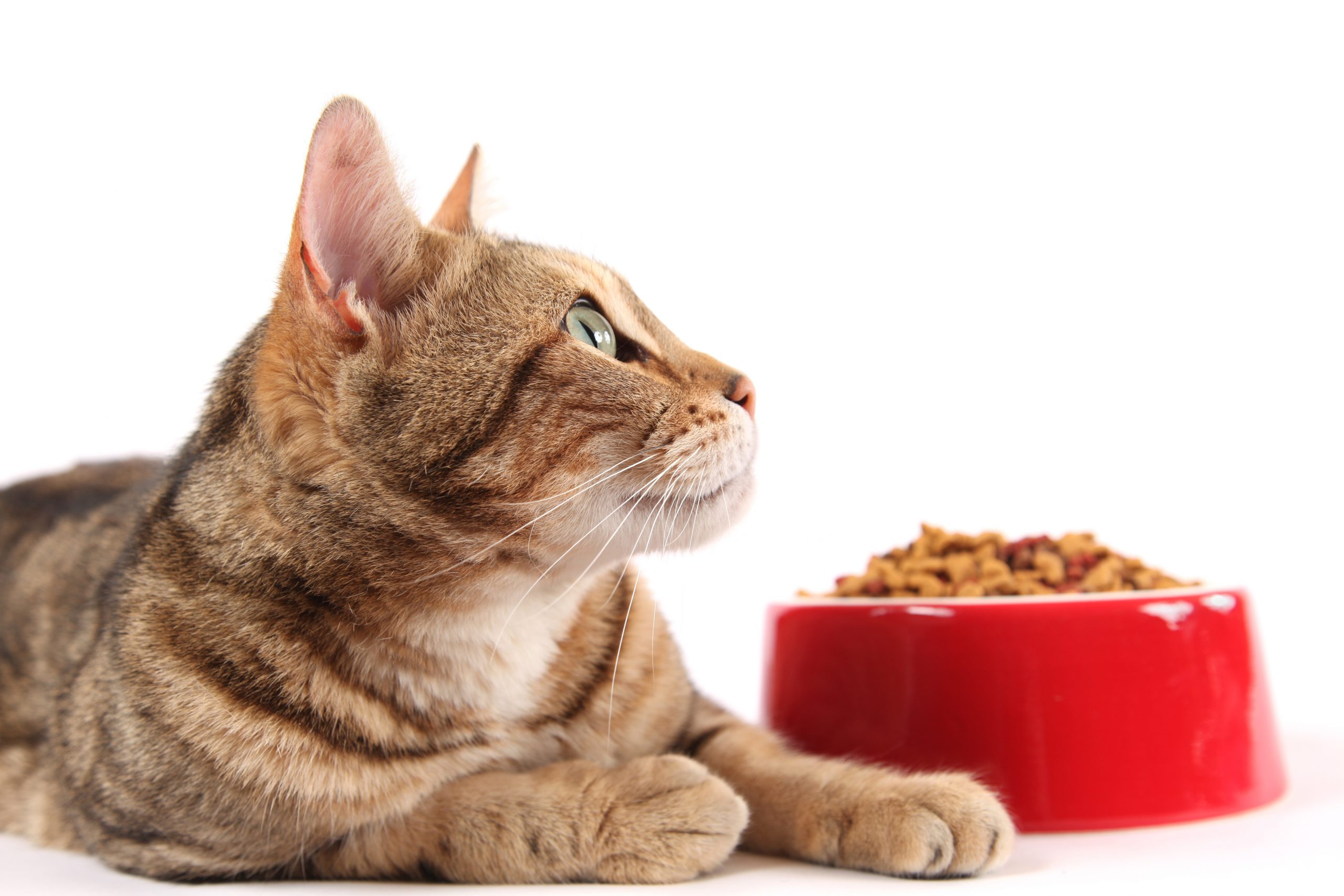What to do to slim down obese cats?

An increasing number of cats are obese, and owners often fail in reducing the weight of their animal. A new study from the University of Illinois explains what it takes to get kitty to shed those extra kilos.
Kelly Swanson and his team at the University of Illinois determined the effects of restriction feeding of a moderate-protein, high-fibre diet on loss of body weight (BW), voluntary physical activity, body composition, and faecal microbiota of overweight cats. The big question was how much does it take to make cats lose weight, especially lazy neutered males?
Swanson addresses that rapid weight loss can lead to hepatic lipidosis, especially in cats. This is why the researchers targeted a 1.5% body weight loss per week, which falls in line with the range (0.5-25 per week) suggested by the American Animal Hospital Association.
Keep cutting intake
The study (with 8 neutered male adult cats), showed that, to achieve that 1.5% loss, the researchers had to cut food intake by 20% compared to a maintenance diet. But that was only the first reduction. Swanson and his colleagues found that to achieve continued weight loss, they had to keep cutting intake every week. On the website of the University of Illinois, Swanson explains: “We had to keep going down, but it can be hard to convince a pet owner to do that. You might get owners to reduce intake from 60 to 50 grams per day, but we’re telling them they might have to go to 45 or 40 grams. We got really low, but we were monitoring them so they were healthy.
Also read: Effect of functional pet food ingredients
Bacteria in droppings
As the weight came off, some bacterial groups in the cat’s droppings became more abundant, while others showed the opposite pattern. Swanson thinks the shifts may lead to positive health effects for the cats, such as lower inflammation, but he is waiting for additional results before making that call. The cat’s activity level didn’t change much, although it is recommended to encourage cats to exercise as much as possible.
Restricted feeding is safe
Based on the results of this cat study, the researchers conclude that restricted feeding of a moderate-protein, high-fibre diet appeared to be a safe and effective means for weight loss in cats. Energy requirements for neutered cats may be overestimated and should be reconsidered.
The article, “Effects of weight loss while feeding a moderate-protein, high-fiber diet on body composition, voluntary physical activity, and fecal microbiota of overweight cats,” is published in the American Journal of Veterinary Research.
[Source: University of Illinois]











